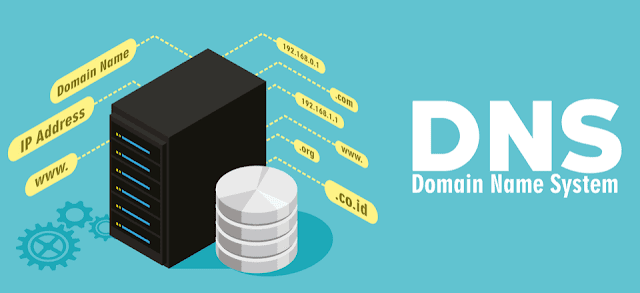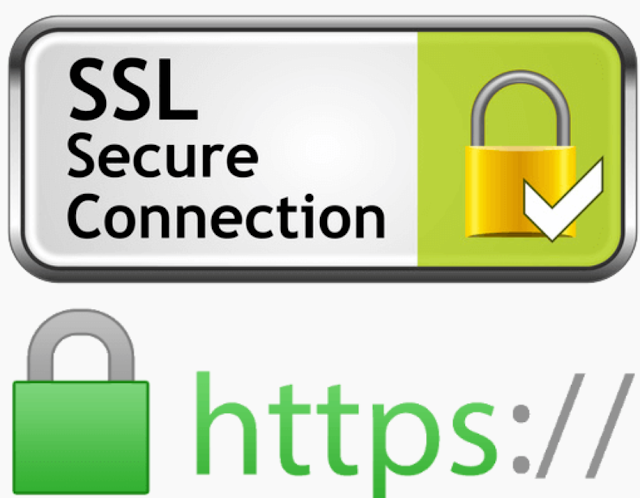Monday, 28 August 2023
 16:37:00
16:37:00 Steph Paul
Steph Paul DNS, DNS Servers, Domain, Domain Name, Domain Name System, Subdomain
DNS, DNS Servers, Domain, Domain Name, Domain Name System, Subdomain No comments
No comments
Tuesday, 22 August 2023
 18:24:00
18:24:00 Steph Paul
Steph Paul HTTP, HTTPS
HTTP, HTTPS No comments
No comments
In the rapidly evolving landscape of the internet, ensuring the security and integrity of data transmission is paramount. This is where the HTTPS port comes into play, serving as a critical component for maintaining a safe online environment. In this comprehensive guide, we delve into the depths of HTTPS port, unraveling its significance, functionality, and how to effectively utilize it to enhance your website's security.
Unveiling the HTTPS Port: A Closer Look
At its core, HTTPS stands for Hypertext Transfer Protocol Secure. It is an advanced iteration of the standard HTTP protocol, with an added layer of security provided by SSL/TLS encryption. This encryption is what safeguards the data transmitted between a user's browser and the web server from prying eyes and potential malicious actors. The HTTPS port, denoted by port number 443, is the gateway through which this secure communication flows.
The Significance of HTTPS Port
The HTTPS port acts as a secure channel through which sensitive information, such as login credentials, credit card details, and personal data, is exchanged between a user and a website. It's a shield against cyber threats like eavesdropping, data manipulation, and identity theft. As search engines and internet browsers prioritize secure websites, having your website utilize the HTTPS port is no longer just an option, but a necessity.
How to Set Up and Utilize the HTTPS Port Effectively
1. Obtain an SSL/TLS Certificate
To harness the power of the HTTPS port, you need to secure an SSL/TLS certificate. This certificate is a digital document that authenticates the identity of your website and enables encryption. It's like a virtual padlock that assures visitors their data is in safe hands.
2. Choose the Right SSL/TLS Certificate
Not all SSL/TLS certificates are created equal. Depending on your website's needs, you can opt for a Domain Validated (DV) certificate for basic encryption, Organization Validated (OV) certificate for business validation, or Extended Validation (EV) certificate for the highest level of trust indication.
3. Install and Configure the Certificate
Once you've obtained the certificate, it's time to install and configure it on your web server. This might vary depending on the server you're using (e.g., Apache, Nginx, IIS), but the process usually involves generating a Certificate Signing Request (CSR), submitting it to a Certificate Authority (CA), and then implementing the issued certificate on your server.
4. Update Internal Links and Resources
Ensure that all internal links and resources, such as images, stylesheets, and scripts, are updated to use the HTTPS protocol. Mixed content (HTTP and HTTPS resources on the same page) can trigger security warnings and degrade the user experience.
5. Implement 301 Redirects
To maintain SEO equity and avoid duplicate content issues, set up 301 redirects from HTTP URLs to their HTTPS counterparts. This informs search engines that your website has moved to the secure version.
The SEO Boost of HTTPS Port Implementation
Beyond the undeniable security benefits, implementing the HTTPS port can significantly impact your website's search engine optimization (SEO) efforts. Search engines like Google consider security a ranking factor, meaning that secure websites are more likely to rank higher in search results.
1. Ranking Signal
Google officially announced that HTTPS is a ranking signal in its algorithm. While it might not be the sole determinant, it can be the differentiator between two closely matched websites vying for the same spot in search results.
2. Trust and Credibility
When users see the reassuring padlock symbol in their browser's address bar, they are more likely to trust your website. Trust is a crucial factor in user engagement, conversion rates, and reduced bounce rates—all of which positively impact SEO.
3. Referral Data Integrity
With HTTPS, referral data remains intact when traffic passes through a secure connection. This means that you can accurately track the source of your website's traffic, leading to better-informed marketing strategies.
In Conclusion
The HTTPS port is not just a technical jargon; it's the safeguard that keeps your website and its visitors protected. Beyond security, the SEO benefits of HTTPS implementation are undeniable. So, take the leap, secure your website with an SSL/TLS certificate, and embrace the power of the HTTPS port. Enhance your website's security, build trust with your audience, and enjoy the SEO rewards that come with it.
Wednesday, 9 August 2023
 18:17:00
18:17:00 Steph Paul
Steph Paul Secure Web Hosting, Web Hosting
Secure Web Hosting, Web Hosting No comments
No comments
The Power of AI in Web Hosting
The Future Landscape of Web Hosting
Embracing the AI Advantage
Wednesday, 2 August 2023
 16:23:00
16:23:00 Steph Paul
Steph Paul Web Hosting
Web Hosting No comments
No comments










